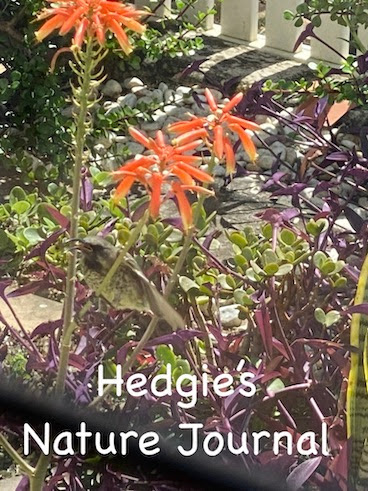A Red Bishop I sketched in my garden a couple of years ago - done in one of my Nature Journals
The “language of birds” has many names; some call it the “Language of the Gods”, others the “Green language”. Some have described the “language of birds” as “the tongue of Secret Wisdom." Its vocabulary is myth. Its grammar is symbolism.
But what is “bird language”? On first inspection, it would be the language that the birds use to communicate amongst themselves. It is a language the birds understand, but we humans do not. To many, the language of birds is therefore nothing more or less than a series of secret codes and phrases, which pass by in daily conversation, except for those with ears that “hear”.
"Hearing" the birds in your garden is a wonderful past-time. By listening carefully, and regularly, you will soon understand each innuendo, each call, each tweet and twitter. I know exactly when my birds are warning me of an intruder in the garden, when there is danger in the air or when they're purely singing for the joy of it. I also know their mating calls, I know when there's a strange bird in my garden and I know their call when they are looking for one another. Most heart-warming is hearing a fledgling calling its parents from the ground, and their response, as they find him and carry him a little snack.
C'mon, listen to the birds in your garden, or wherever you are, and discover a wonderful world of communication, excitement and a better story than the Joneses next door!
::














